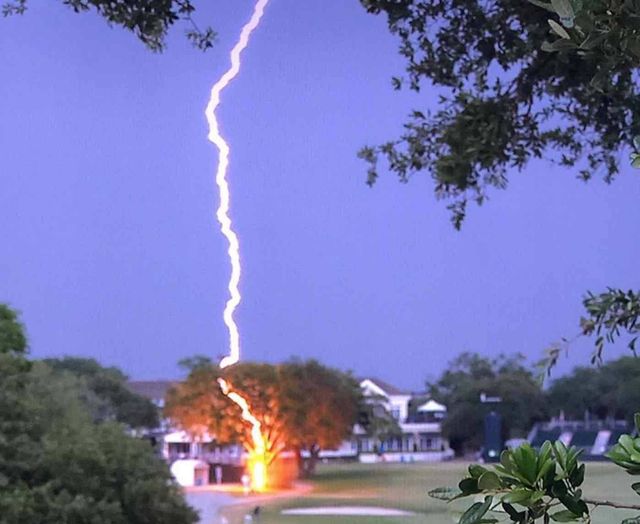
The ACLE Net Zambian Center for Lightning Information and Research Organization (ZACLIR) has charged that the government is moving at a snail’s pace towards supporting lightning safety awareness campaigns across the country.
In recent weeks, Luapula Province has experienced a distressing surge in lightning-related fatalities, which have so far claimed the lives of over nine people this year.
Speaking in an exclusive interview with the Zambian Business Times – ZBT, director of ACLE Net Zambia (ZACLIR) who is also a Scientist in lightening research Foster Chileshe Lubasi said that for the past three years now, her organization has been trying to work with the disaster management and mitigation unit (DMMU) to carryout lightning safety awareness campaigns in every part of the country but the response from the unit has not been encouraging.
Lubasi said that currently, ACLE Net Zambia (ZACLIR) is in the process of planning how best the organization can effectively commence with the campaign hoping that when they do so government will come in.
She added that the organization is also carrying out a research project with Witwatersrand University in South Africa aimed at studying indigenous knowledge on lightening because the aforementioned university has better equipment and their lightening research labs are more established.
“The challenge that we are currently facing is that the government is not saying no but they are also moving very slowly into supporting us so that we can do lightening safety awareness campaigns in every part of the country. We have been trying to work with DMMU. If you go to DMMU you will find hundreds of our letters there. They keep postponing dates for round table talks of which it’s now been 2 to 3 years. We’ve been trying to get the government and the corporate world into supporting us so that we can do lightning safety awareness campaigns in every part of the country because that’s the very first step basically when you look at those two children who were playing in the house when it was raining, there were supposed to be doing so when it was raining especially when there are lightning and thunderstorms. After all, if lightning strikes, it has potential voltage rings and if you step on those you are gone,” she said.
“Right now we are in the process of planning so that we think on how we can effectively start this work hoping that when we start with the campaigns government will come in but right now government is government and it hasn’t been very encouraging. Currently, we have a research project which we are doing with Witwatersrand University in South Africa where we want to study indigenous knowledge because they have better equipment and their lightning research labs are more established,” said Lubasi.
Lubasi revealed that before the country even talks about what needs to be put up for lightning protection, people need knowledge on how they can protect themselves.
She advised that people must ensure that lightning protection systems are incorporated into their buildings to avoid lightning-related deaths.
She added that there is a need for government to advocate for the ban of hats in rural areas which are at a higher risk of being struck by lightning.
“So we advise people to sit in one place and not sit on the floor. We also advise people to sit in an elevated position and put their legs together and not spread them, not take their bath while it’s raining, and not lean against the wall because if lightning strikes your house, the lightening current goes down through the walls and depending on the magnitude of the voltage that strikes your roof, it can jump from the roof down to the ground. So people need to know all those things but they can only know if we do lightening awareness campaigns. Before we even talk about what we can put up for their lightning protection, people need knowledge on how they can protect themselves. Lightening protection systems must be part and parcel when people are seeking approval of building their houses they must ensure that lightening protection system is incorporated and it must be appropriate for the size of the house,” she said.
“For the villages, the other thing we need to advocate is that the government should ban hats. The government must insist that everyone builds a bigger house because if your house is too small and lightning strikes your house, electromagnetic signals are everywhere which makes it difficult for one to escape. We are not talking about big high-cost houses but affordable bigger houses. What is needed are bigger houses with space where people can put chairs unlike small houses where one is unable to put a stool in there,” said Lubasi.









